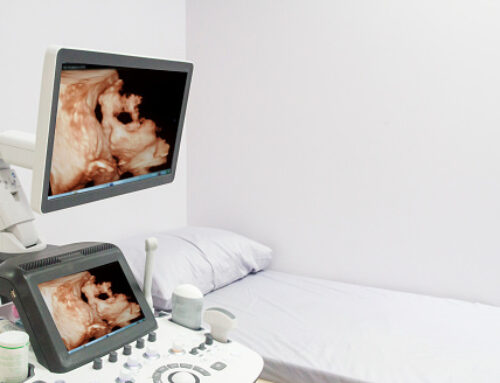Ultrasound is a medical imaging technique that uses high-frequency sound waves to create images of the inside of the body. It is commonly used during pregnancy to monitor the growth and development of the fetus. Ultrasound is safe, non-invasive, and does not use ionizing radiation, making it an ideal tool for monitoring fetal health.
Why is ultrasound used during pregnancy?
Ultrasound is used during pregnancy for a variety of reasons. The most common reason is to confirm pregnancy and determine the due date. Ultrasound can also be used to:
- – Monitor fetal growth and development
- – Check for multiple pregnancies
- – Detect abnormalities in the fetus
- – Determine the position of the placenta
- – Evaluate amniotic fluid levels
- – Guide procedures such as amniocentesis or chorionic villus sampling

When is ultrasound performed during pregnancy?
Ultrasound is typically performed at different stages of pregnancy:
- First trimester (up to 13 weeks): During this stage, ultrasound can confirm pregnancy, determine the due date, and check for any abnormalities such as ectopic pregnancy or miscarriage.
- Second trimester (14 to 26 weeks): This is when most routine ultrasounds are performed. The ultrasound can check for fetal growth and development, detect any abnormalities, and determine the sex of the baby if desired.
- Third trimester (27 weeks or later): Ultrasound may be performed in late pregnancy to check on fetal growth and position, evaluate amniotic fluid levels, or monitor certain conditions such as preeclampsia.
In some cases, additional ultrasounds may be needed if there are concerns about fetal health or development.
Is ultrasound safe during pregnancy?
Ultrasound has been used in obstetrics for over 50 years and has been shown to be safe for both mother and fetus. There have been no known harmful effects from diagnostic ultrasound when used appropriately by trained professionals. However, it is important to note that ultrasound should only be performed when medically necessary and not for entertainment purposes.
In conclusion, ultrasound is an important tool in monitoring fetal health and development during pregnancy. It is safe, non-invasive, and provides valuable information to healthcare providers. If you have any concerns about the use of ultrasound during your pregnancy, talk to your healthcare provider.







